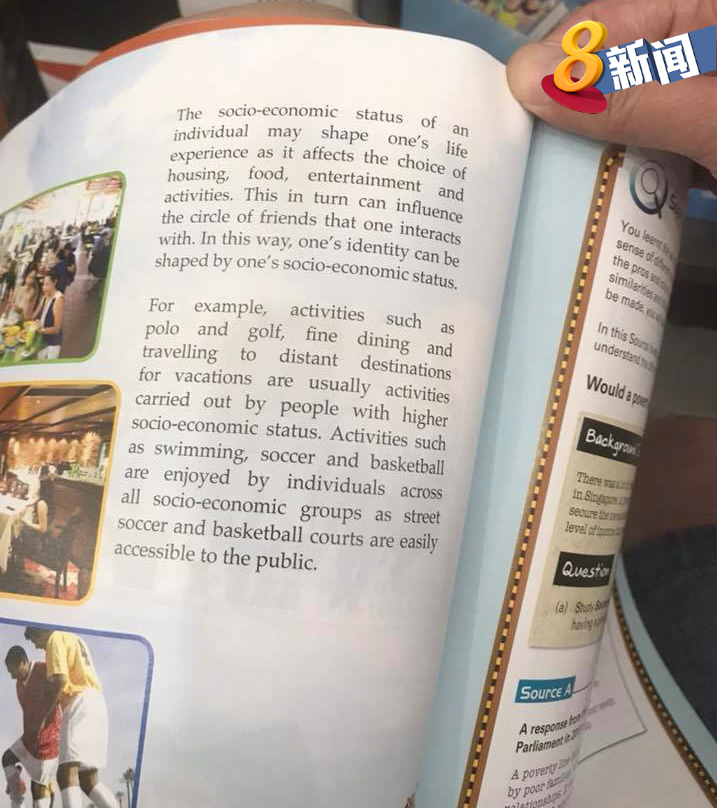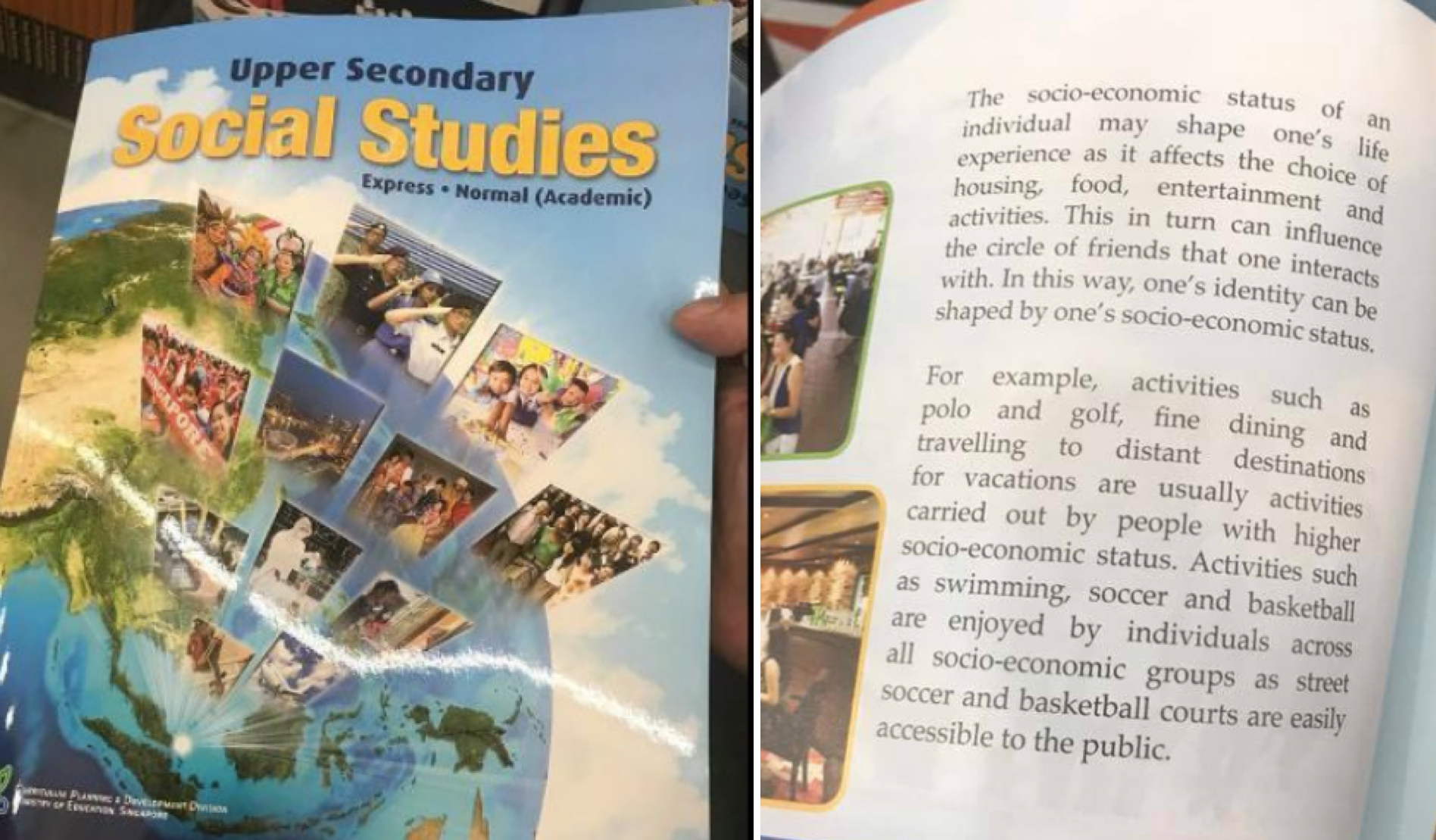Singaporeans, mostly with Lower Socio-Economic Status (SES), were recently triggered by a Social Studies guidebook not approved by the Ministry of Education.
They felt that the book, Complete Guide to GCE O'Level Social Studies, explained Lower and Higher SES in binary terms that was too insensitive, inaccurate and deterministic.
For example, if you belong to the higher socio-economic status, the book said you:
• Use formal English in daily conversation or at home
• Play sports or tennis at an exclusive country club
• Have regular fine dining at expensive restaurants
• Travel overseas for leisure during school holidays
If you belong to the lower socio-economic status, the book said you:
• Use Singlish or different dialects in daily conversation or at home
• Play football or basketball in HDB estates
• Eat at hawker centres or at home
• Work part-time jobs during vacation time to meet family basic needs
SES-related content is part of the official Social Studies curriculum taught in upper secondary level.
MOE-approved textbook more nuanced
In a Channel 8 News report, an example of a MOE-approved Social Studies textbook was submitted by a reader to compare its contents to the guidebook that caused a stir.
The main difference between the MOE-approved textbook and the non-approved one is in the way the topic is discussed in less deterministic ways.
This is what the MOE-approved textbook said:
The socio-economic status of an individual may shape one's life experience as it affects the choice of housing, food, entertainment and activities. This in turn can influence the circle of friends that one interacts with. In this way, one's identity can be shaped by one's socio-economic status.
For example, activities such as polo and golf, fine dining and travelling to distant destinations for vacations are usually activities carried out by people with higher socio-economic status. Activities such as swimming, soccer and basketball, are enjoyed by individuals across all socio-economic groups as street soccer and basketball courts are easily accessible to the public.
 Image via Channel 8 News
Image via Channel 8 News
The report also cited the reader as saying that even though the textbook -- written by the Curriculum Planning and Development Division -- was not as "extreme" as the non-MOE-approved one, he felt that there is no need to teach students to differentiate people according to their SES.
MOE responds
In response to queries from Channel 8 News, MOE said SES-related content is part of the "Living in a Diverse Society" theme.
The theme aims to teach students the "individual and group responsibility" that they have to fulfil when it comes to improving and maintaining social harmony.
Through this topic, in addition to having a better understanding of the complex combination of factors that make up an individual's identity, students should also be able to
- Understand not only the differences that set people apart, but also the commonalities that they share, as well as
- learn to cope in a diverse society.
MOE also pointed out that the concept of SES is not easy to explain.
This is because it comprises a plethora of factors, such as one's occupation, income, education level, and wealth.
Therefore, they decided to use examples that students can not only relate to easily, but also allow them to reflect upon the "realities" of SES.
[related_story]
MOE hopes to cultivate "well-informed" and "compassionate" S'poreans
MOE added that the topic of SES was added to the official O- and N- Level Social Studies syllabuses after a revision in 2016.
MOE also said locals were consulted prior to the revision, and that other related topics such as "pluralistic society" and "globalisation" were also included in the syllabus to help cultivate a more informed and compassionate citizenry.
Other than SES, the syllabus also includes other factors that make up individual identities, such as nationality, race and religion.
MOE said it hopes students can learn creativity and critical thinking, and consider various perspectives before giving a "reasonable" and "constructive" opinion.
Top image via Channel 8 News
If you like what you read, follow us on Facebook, Instagram, Twitter and Telegram to get the latest updates.
